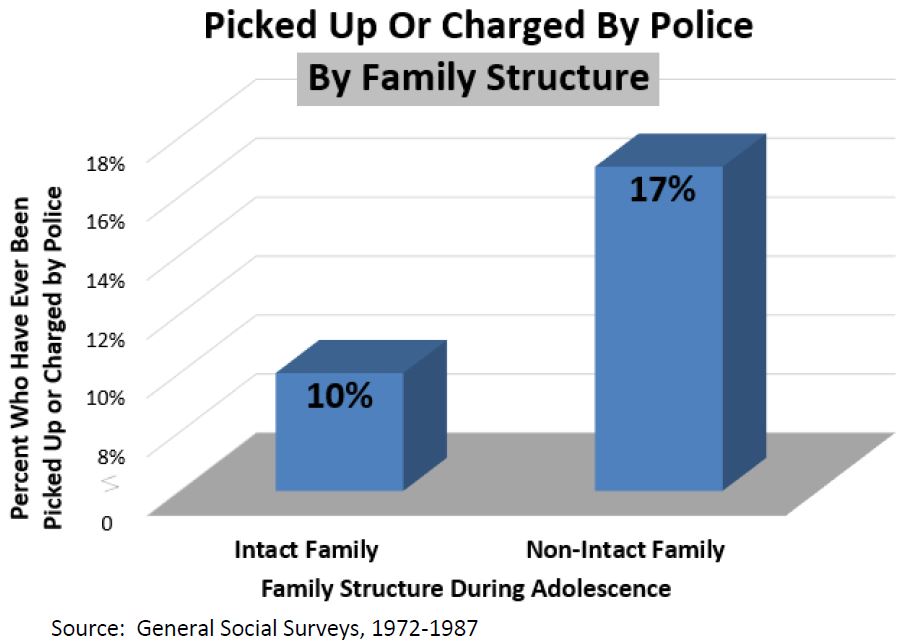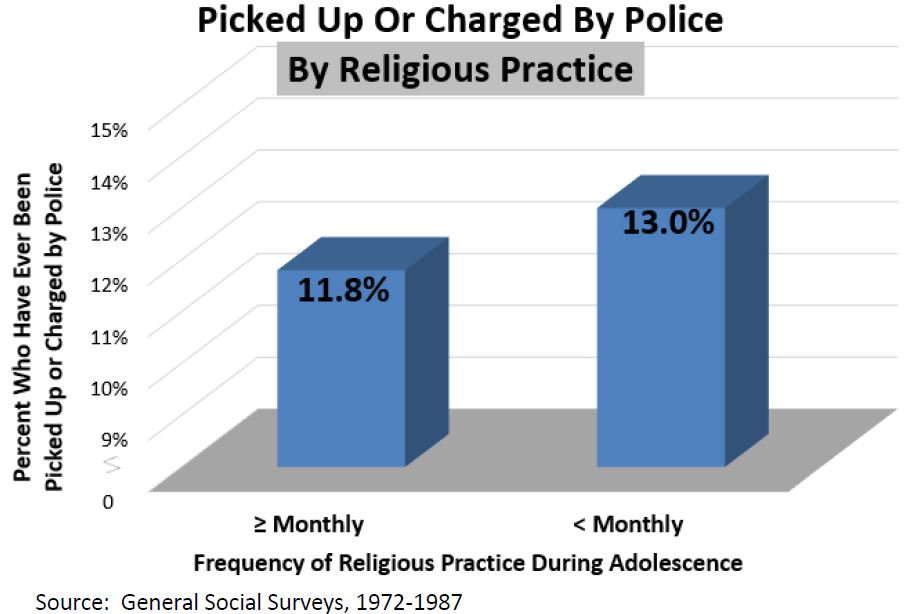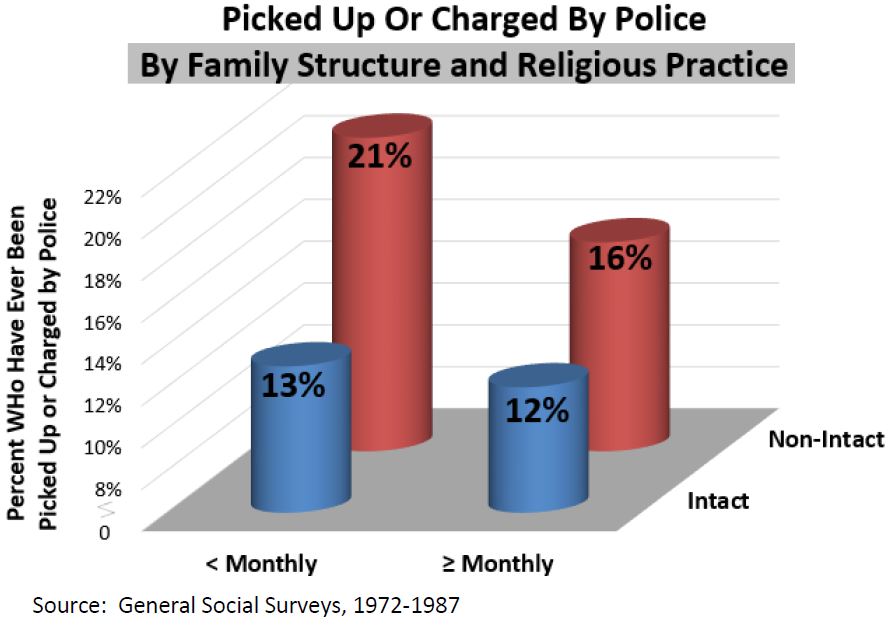Click Here to download “Picked Up or Charged by Police By Family Structure and Religious Practice”
Picked Up or Charged by Police By Family Structure and Religious Practice
Family Structure: According to the 1972-1987 General Social Survey, 10 percent of adults who lived in an intact family as adolescents have ever been picked up or charged by police, compared to 17 percent of those who lived in a non-intact family. Religious Practice: Based on the General Social Survey 11.8 percent of adults who attended religious services at least monthly as adolescents have ever been picked up or charged by police, compared to 13 percent of adults who attended worship less than monthly as adolescents.
Religious Practice: Based on the General Social Survey 11.8 percent of adults who attended religious services at least monthly as adolescents have ever been picked up or charged by police, compared to 13 percent of adults who attended worship less than monthly as adolescents.
 Family Structure and Religious Practice Combined: About 12 percent of adults who attended religious services at least monthly and lived in an intact family through adolescence have ever been picked up or charged by police, compared to 21 percent of adults who attended religious services less than monthly and lived in a non-intact family as adolescents. In between were those who lived in an intact family but attended religious services less than monthly (13 percent) and those who had attended religious services at least monthly but lived in a non-intact family (16 percent).
Family Structure and Religious Practice Combined: About 12 percent of adults who attended religious services at least monthly and lived in an intact family through adolescence have ever been picked up or charged by police, compared to 21 percent of adults who attended religious services less than monthly and lived in a non-intact family as adolescents. In between were those who lived in an intact family but attended religious services less than monthly (13 percent) and those who had attended religious services at least monthly but lived in a non-intact family (16 percent).
 Related Insights from Other Studies: Several contemporaneous studies corroborate the direction of these findings. Mark Regnerus of the University of Texas at Austin reported that adolescents with more religious parents and higher family satisfaction are less likely to exhibit delinquent behavior.[1]
Wendy Manning of Bowling Green State University and Kathleen Lamb of the University of Wisconsin also found that adolescents who were more religious and adolescents who lived with their married parents were less likely to paint graffiti or signs on someone else’s property or in a public place, deliberately damage someone else’s property, take something from a store without paying for it, drive a car without the owner’s permission, use or threaten to use a weapon to get something from someone, and sell marijuana or other drugs.[2]
As the evidence shows, religious attendance and an intact family weave a powerful safety net that keeps both adolescents, and later adults, from being picked up or charged by police.
[1] Mark D. Regnerus, “Linked Lives, Faith and Behavior: Intergenerational Religious Influence on Adolescent Delinquency,” Journal for the Scientific Study of Religion, vol. 42 (2003): 189-203.
[2] Wendy D. Manning and Kathleen A. Lamb, “Adolescent Well-Being in Cohabiting, Married, and Single-Parent Families,” Journal of Marriage and Family, vol. 65 (2003): 876-893.]]>
Related Insights from Other Studies: Several contemporaneous studies corroborate the direction of these findings. Mark Regnerus of the University of Texas at Austin reported that adolescents with more religious parents and higher family satisfaction are less likely to exhibit delinquent behavior.[1]
Wendy Manning of Bowling Green State University and Kathleen Lamb of the University of Wisconsin also found that adolescents who were more religious and adolescents who lived with their married parents were less likely to paint graffiti or signs on someone else’s property or in a public place, deliberately damage someone else’s property, take something from a store without paying for it, drive a car without the owner’s permission, use or threaten to use a weapon to get something from someone, and sell marijuana or other drugs.[2]
As the evidence shows, religious attendance and an intact family weave a powerful safety net that keeps both adolescents, and later adults, from being picked up or charged by police.
[1] Mark D. Regnerus, “Linked Lives, Faith and Behavior: Intergenerational Religious Influence on Adolescent Delinquency,” Journal for the Scientific Study of Religion, vol. 42 (2003): 189-203.
[2] Wendy D. Manning and Kathleen A. Lamb, “Adolescent Well-Being in Cohabiting, Married, and Single-Parent Families,” Journal of Marriage and Family, vol. 65 (2003): 876-893.]]>
